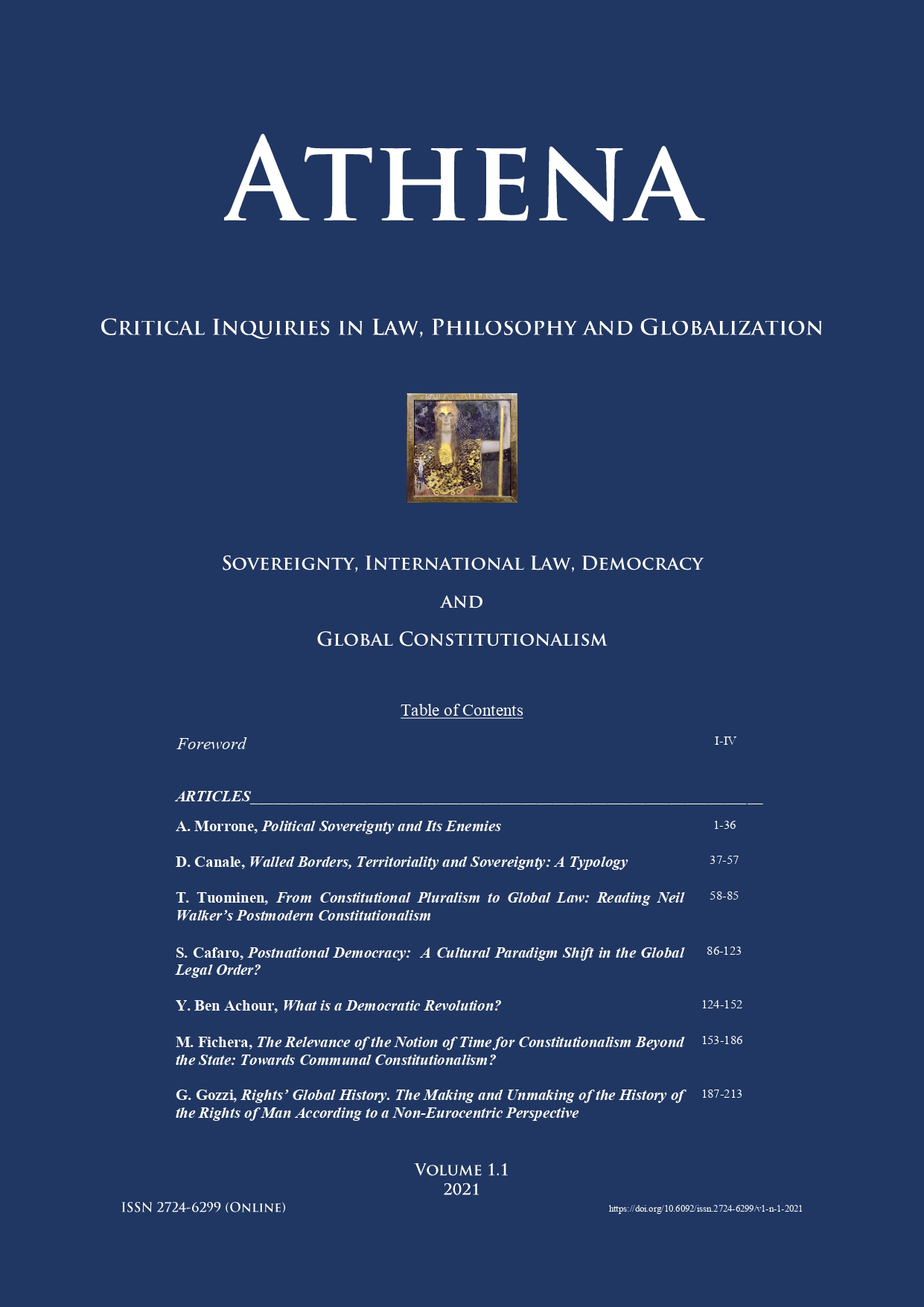From Constitutional Pluralism to Global Law: Reading Neil Walker’s Postmodern Constitutionalism
DOI:
https://doi.org/10.6092/issn.2724-6299/12474Keywords:
constitutional pluralism, global constitutionalism, epistemology, postmodernism, critical theory, sociologyAbstract
Neil Walker, one of the foremost constitutional theorists of our time, is perhaps best known for his work on constitutional pluralism and global constitutionalism. Having first pioneered the study of constitutional pluralism in the context of the European Union, and developed epistemic constitutional pluralism, Walker has since extrapolated these ideas onto the global plane. What are the key arguments Walker has made regarding constitutional pluralism and global constitutionalism, and how are we to understand this body of work? This article attempts to answer this question by way of reading Walker’s work in light of philosophy, sociology and critical theory. Parallels are drawn especially with the ideas of functional differentiation and governmentality, but also other ideas prevalent in postmodern scholarship. This article concludes by highlighting the similarities between Walker’s constitutional pluralism and Michel Foucault’s governmentality, and by proposing to combine these two in the study of European constitutionalism.
Downloads
Downloads
Published
How to Cite
Issue
Section
License
Copyright (c) 2021 Tomi Touminen

This work is licensed under a Creative Commons Attribution 4.0 International License.





